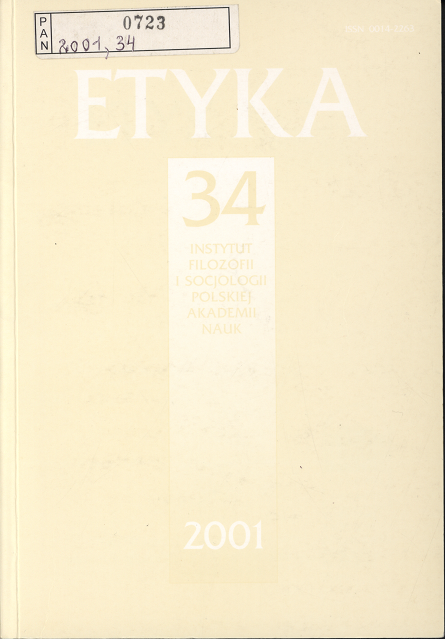Terrorism and religion
Abstract
The Twin Towers were destroyed by Muslim fanatics. Their inability to perceive the repulsive aspect of their act is remarkable and requires a philosophical interpretation. Obviously, religious beliefs cannot be tested on empirical grounds or by logical arguments. On the other hand, it would be wrong to assume that every religious conviction is as credible as any other. The author tries to separate innocuous religious beliefs from insane claims by arguing that the most reliable criterion of religious plausibility can be derived from Plato’s Phaedrus and the story of two horses, one white and one black, pulling the chariot of our souls. The white horse stands for saintliness, the black for sin. One cannot do much more to make the distinction between the safe and uplifting aspect of religion and the dangerous and irresponsible aspect of faith more precise and specific. Terrorism is a deviation that arises within a religion where this distinction has been completely confused, where goodness is identified with a blind and unconditional submission to one group of religious adherents and evil is identified with distancing oneself from the group. Social and political loyalty has replaced religious loyalty. So narrow an interpretation cannot be reconciled with an impartial concept of sin and righteousness.Downloads
Published
Issue
Section
License
Works published in ETYKA are available under the Creative Commons Attribution No Derivatives 4.0 International Licence (CC BY-ND), which entails acknowledgement of authorship without derivative works. Under this licence, Authors keep their copyrights and agree that their works can be used again legally for any purpose, including commercial ones, except for the creation of derivative works, without the need to obtain previous consent of the Author or publisher. The articles can be downloaded, printed, copied and disseminated; under the condition that the authorship is indicated accordingly, together with the place of original publication. The Authors preserve their copyrights to the above-mentioned works without any limitation whatsoever.



